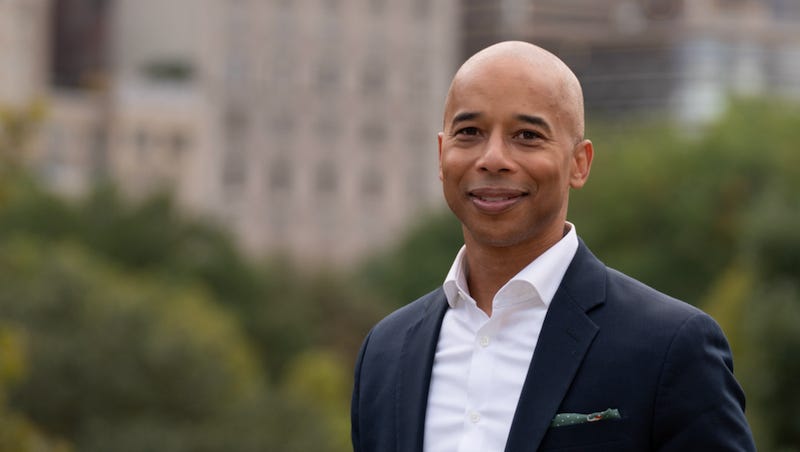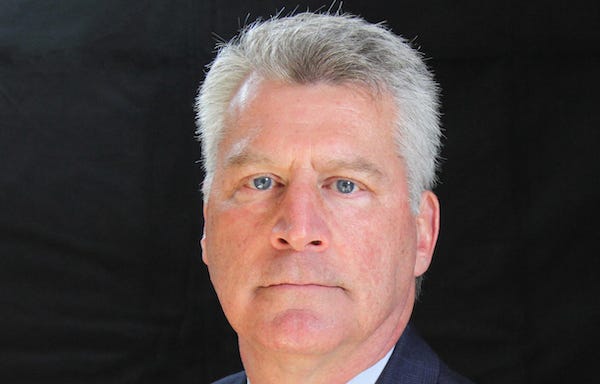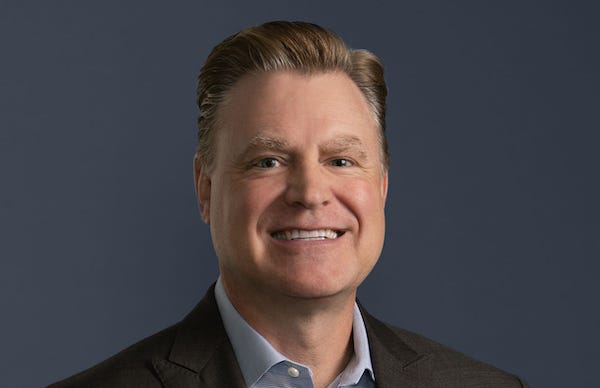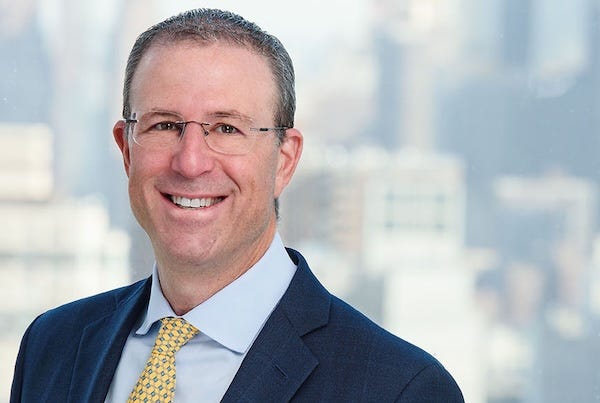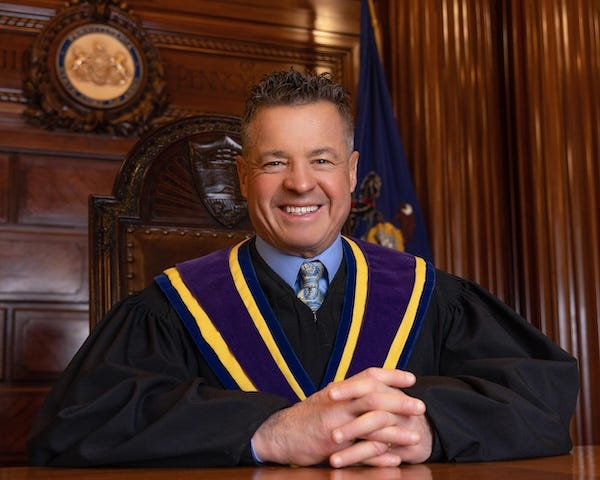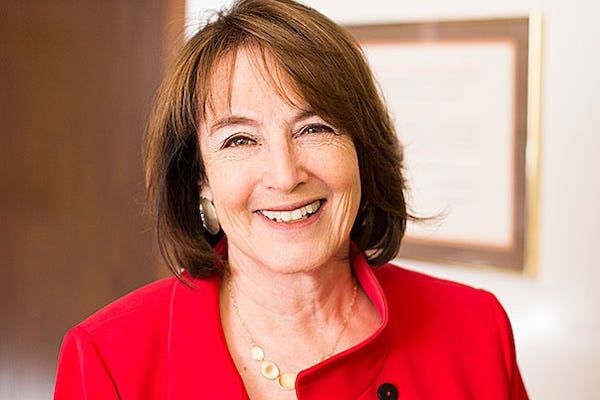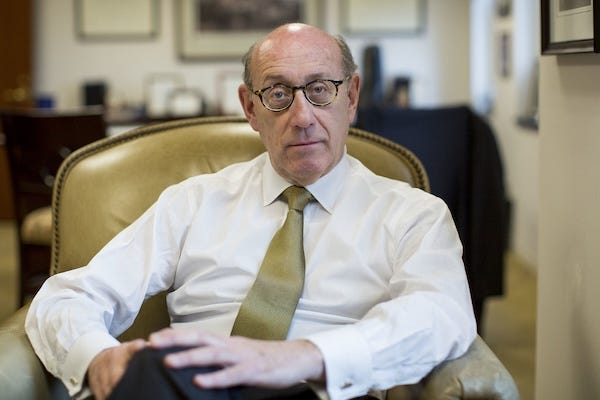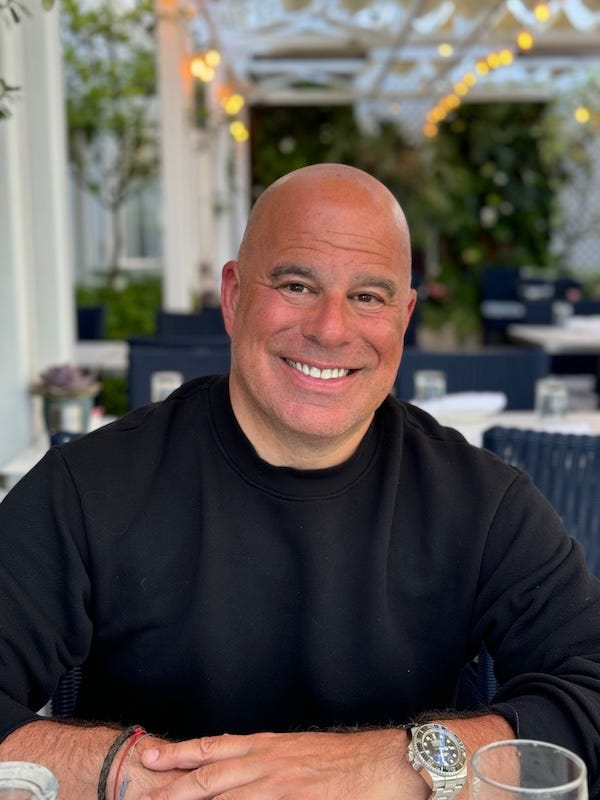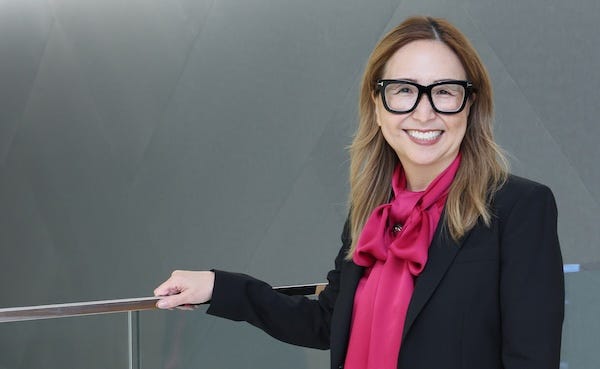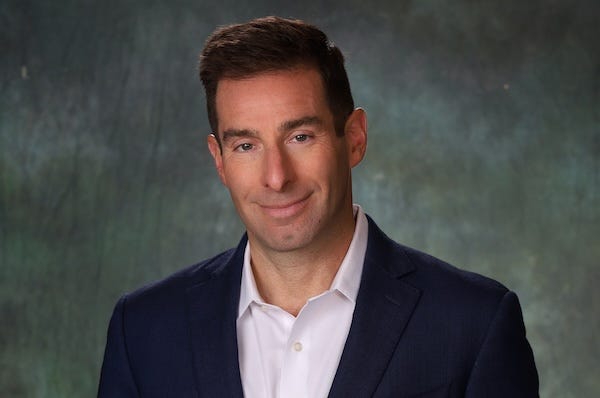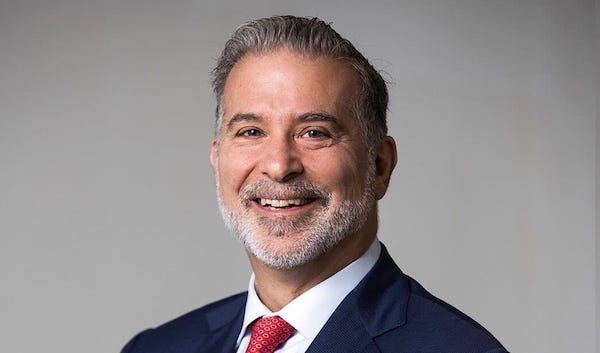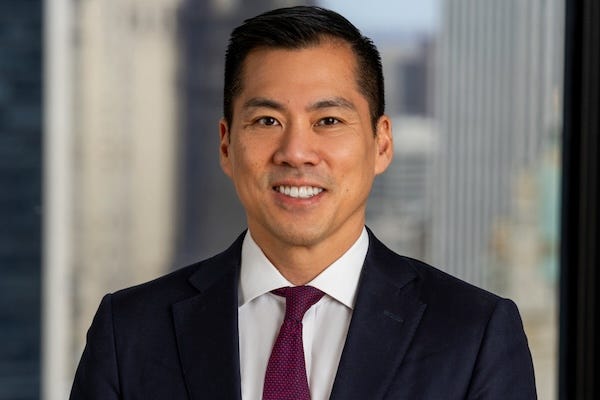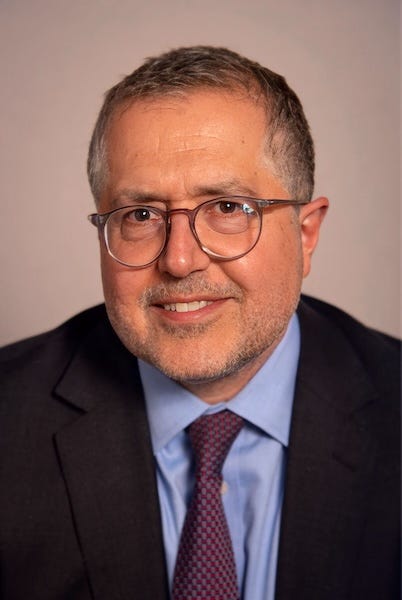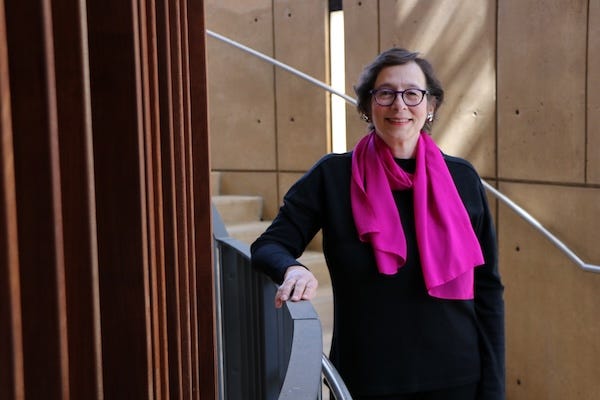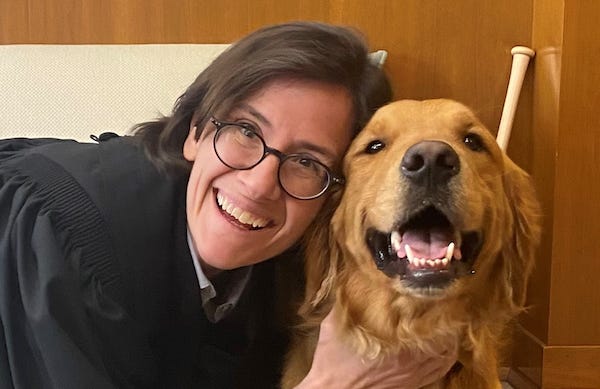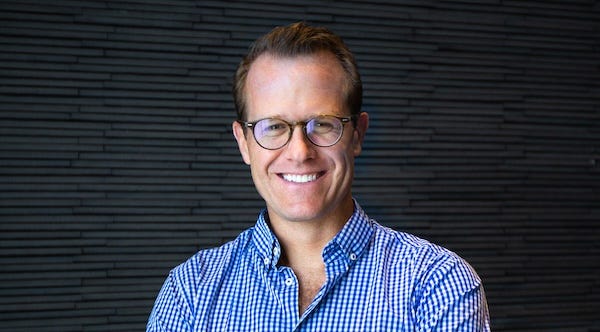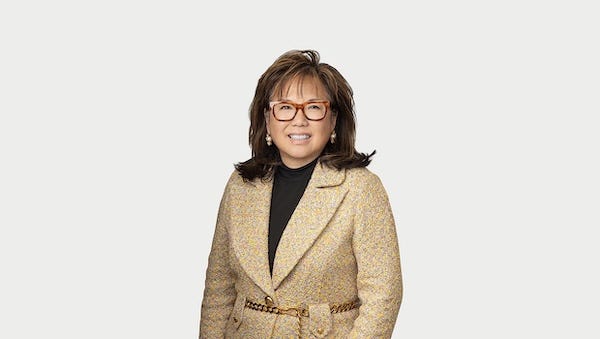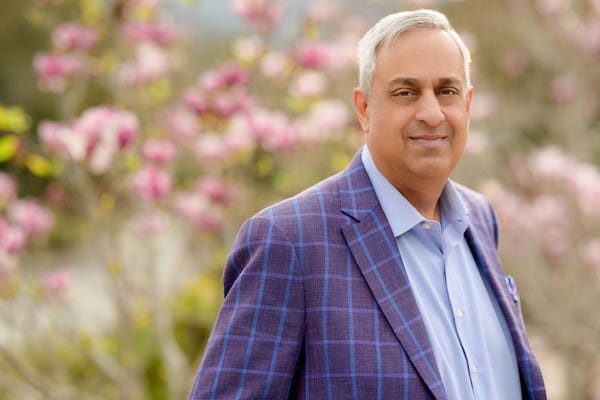Discover Original Jurisdiction
Original Jurisdiction

Original Jurisdiction
Author: David Lat
Subscribed: 67Played: 1,593Subscribe
Share
© David Lat
Description
Original Jurisdiction, a podcast about law and the legal profession, features host David Lat interviewing some of the most interesting, influential, and important people in the world of law. It's the companion podcast to Lat's Substack newsletter of the same name. You can follow David on Twitter (@DavidLat) or email him at davidlat@substack.com, and you can subscribe to his newsletter at davidlat.substack.com.
davidlat.substack.com
davidlat.substack.com
90 Episodes
Reverse
If you’re my age, you’ll recall the story of Bernhard Goetz. On a New York City subway car on December 22, 1984, Goetz shot four Black teenagers from the Bronx at point-blank range. Accused of attempted murder, Goetz went to trial—and was acquitted on the most serious charges, after claiming he acted in self-defense.Goetz became internationally famous—or infamous, as the case may be—and folks who were around in the ‘80s will surely be interested in looking back on his case, seeing where he is now, and the like. But even if you’re not familiar with Bernie Goetz, the issues his actions raised remain very relevant to our current moment.If you’re interested in exploring these important subjects, I have a reading recommendation for you: Five Bullets: The Story of Bernie Goetz, New York’s Explosive ‘80s, and the Subway Vigilante Trial That Divided the Nation, by Elliot Williams. A former prosecutor turned CNN legal analyst, Williams is perfectly positioned to delve into the Goetz case—and connect it to current controversies.Thanks to Elliot for writing Five Bullets. And thanks to him for joining me—for a wide-ranging discussion covering his fascinating career as a lawyer turned journalist, his compelling new book, the Goetz case, and what’s going on right now in Minnesota (Elliot is a former senior official at ICE)—on the Original Jurisdiction podcast.Show Notes:* Elliot Williams bio, Penguin Random House* Five Bullets: The Story of Bernie Goetz, New York’s Explosive ‘80s, and the Subway Vigilante Trial That Divided the Nation, Amazon* The Subway Vigilante Who Never Left Is Back (gift link), by David Segal for The New York TimesPrefer reading to listening? For paid subscribers, a transcript of the entire episode appears below.Sponsored by:NexFirm helps Biglaw attorneys become founding partners. To learn more about how NexFirm can help you launch your firm, call 212-292-1000 or email careerdevelopment@nexfirm.com. This is a public episode. If you'd like to discuss this with other subscribers or get access to bonus episodes, visit davidlat.substack.com/subscribe
How would you react if you saw Jack Smith, the former special counsel who prosecuted Donald Trump, at Costco?It might just happen. Last week, Jack Smith launched his own litigation boutique, along with three other former federal prosecutors: Timothy Heaphy, David Harbach, and Thomas Windom. A new law firm is like a startup, where the founders have to do many things themselves—so on Tuesday of last week, Tim Heaphy and two of his partners went to Costco to buy paper towels. Jack Smith didn’t join them—he was busy preparing for his testimony before the House Judiciary Committee, taking place tomorrow—but according to Heaphy, Smith’s on deck for the next Costco run.This was one of several fun tidbits that Tim Heaphy (pronounced HAY-fee) shared with me in the latest episode of the OJ podcast. We covered a number of interesting subjects, including Heaphy’s service as both a U.S. attorney (W.D. Va.) and as chief investigative counsel to the House Select Committee to Investigate the January 6th Attack; what Heaphy, a former partner at Willkie Farr, thought about the firm’s settlement with the Trump administration; and what the mysterious Jack Smith is like as a person.This is an episode you won’t want to miss—especially if you’re interested in the intersection of law and politics during the second Trump administration.Show Notes:* Timothy J. Heaphy bio, Heaphy, Smith, Harbach & Windom LLP* Jack Smith’s New Venture Shuns Label as Anti-Trump Attack Dog, by Justin Henry for Bloomberg Law* Jack Smith’s New Law Firm Opens Its Doors, by Abigail Adcox for Law.comPrefer reading to listening? For paid subscribers, a transcript of the entire episode appears below.Sponsored by:NexFirm helps Biglaw attorneys become founding partners. To learn more about how NexFirm can help you launch your firm, call 212-292-1000 or email careerdevelopment@nexfirm.com. This is a public episode. If you'd like to discuss this with other subscribers or get access to bonus episodes, visit davidlat.substack.com/subscribe
Welcome to the first Original Jurisdiction podcast episode of the new year, an opportune time to both reflect on 2025 and look ahead to 2026. To kick things off, I decided I wanted to interview a Biglaw leader, to get a sense of both the challenges and opportunities facing large law firms today.I was delighted to be joined by Jon Van Gorp, who has served as the chair of Mayer Brown since 2021. A member of both the Am Law 100 and the Vault 100, Mayer Brown has around 2,000 lawyers, $2 billion in revenue, and 150 years of history. As for Jon, he’s a Chambers-ranked, leading practitioner in structured finance—and we began our conversation by discussing his distinguished career in practice.We then moved on to discuss his leadership of Mayer Brown, which Jon views as a way of giving back to an institution that has given so much to him. We covered his approach to leadership, the firm’s strategic plan, and its approach to AI adoption.But Jon was also willing to tackle topics that other Biglaw leaders have been avoiding, such as partner pay and the (rather fraught) relationship between the Trump administration and large law firms. Thanks to Jon for his time, insight, and willingness to discuss delicate—but incredibly important—issues.Show Notes:* Jon D. Van Gorp bio, Mayer Brown LLP* Beyond cold hard cash, warm fuzzies are the way to a lawyer’s heart, firm chair says, by Jenna Greene for Reuters* Mayer Brown Chair On Why Law Leaders Need To Listen More, by Kevin Penton for Law360Prefer reading to listening? For paid subscribers, a transcript of the entire episode appears below.Sponsored by:NexFirm helps Biglaw attorneys become founding partners. To learn more about how NexFirm can help you launch your firm, call 212-292-1000 or email careerdevelopment@nexfirm.com. This is a public episode. If you'd like to discuss this with other subscribers or get access to bonus episodes, visit davidlat.substack.com/subscribe
Every time you ask a question of your AI assistant, it gets sent to a data center, where the response is generated before getting sent back to you. These data centers are critical to the AI revolution. The biggest data-center campuses occupy dozens of acres, span millions of square feet, and cost billions of dollars.And they wouldn’t exist without the work of lawyers. For insight into the complex transactions that bring these data centers into existence, I interviewed Steven Messina, a longtime partner at Skadden Arps and global head of the firm’s banking group (soon to be renamed the finance group, reflecting the evolution of the sector beyond commercial banks).In our conversation, Steve and I discussed how these billion-dollar data centers get financed. But we covered a number of other topics as well, including the evolution of both the finance industry and Biglaw over the past three decades. If you’re interested in technology, business, or law, this is an episode you won’t want to miss.Show Notes:* Steven Messina bio, Skadden, Arps, Slate, Meagher & Flom LLP* Hyperscaler Data Centers: Financing Solutions for Large-Scale Projects, by Steven Messina, Aryan Moniri, David L. Nagler, and Jared S. DubPrefer reading to listening? For paid subscribers, a transcript of the entire episode appears below.Sponsored by:NexFirm helps Biglaw attorneys become founding partners. To learn more about how NexFirm can help you launch your firm, call 212-292-1000 or email careerdevelopment@nexfirm.com. This is a public episode. If you'd like to discuss this with other subscribers or get access to bonus episodes, visit davidlat.substack.com/subscribe
This is a free preview of a paid episode. To hear more, visit davidlat.substack.comDuring the three-plus years that I’ve been hosting this podcast, I’ve welcomed a diverse range of guests. They’ve exhibited demographic diversity, of course, but also other forms of diversity—including diversity of opinion and experience.So I was embarrassed when I recently noticed that although I’ve interviewed more than a dozen current and former judges, only two have sat on state courts (and by the time I interviewed them, those judges—Rolando Acosta and Debra Wong Yang—had left the bench). Put another way, I have not, until today, hosted a sitting state-court judge—a considerable omission, considering the significance of state courts. As noted by the National Center for State Courts, “State courts play a critical role in our democracy, handling about 96 percent of all legal cases in the United States.”I set out to remedy this gap—and was delighted when Justice David Wecht, a longtime friend, agreed to join me. He’s a timely guest: last month, he and two of his colleagues were reelected to the Pennsylvania Supreme Court, for which I named them Judges of the Week. Why? Their court is one of the most important state courts in the country—for reasons I discussed with Justice Wecht on the episode.In our conversation, we also covered the justice’s interesting path to the Pennsylvania high court; why he believes young (and not-so-young) lawyers should get involved with their communities; certain unique features of the Pennsylvania Constitution, as well as its relationship to the U.S. Constitution; and, of course, his recent reelection to the Pennsylvania Supreme Court.Congratulations to Justice Wecht on his reelection—and thanks to him for joining me.Show Notes:* Justice David N. Wecht bio, The Unified Judicial System of Pennsylvania* Approach The Bench: Justice Wecht On Judicial Campaigns, by Cara Bayles and Steven Trader for Law360* Law Day Shabbat: Address by Justice David Wecht, Temple Israel, Wilkes-BarrePrefer reading to listening? For paid subscribers, a transcript of the entire episode appears below.Sponsored by:NexFirm helps Biglaw attorneys become founding partners. To learn more about how NexFirm can help you launch your firm, call 212-292-1000 or email careerdevelopment@nexfirm.com.
This is a free preview of a paid episode. To hear more, visit davidlat.substack.comWelcome to Original Jurisdiction, the latest legal publication by me, David Lat. You can learn more about Original Jurisdiction by reading its About page, and you can email me at davidlat@substack.com. This is a reader-supported publication; you can subscribe by clicking here.How are the federal courts faring during these tumultuous times? I thought it would be worthwhile to discuss this important subject with a former federal judge: someone who understands the judicial role well but could speak more freely than a sitting judge, liberated from the strictures of the bench.Meet Judge Nancy Gertner (Ret.), who served as a U.S. District Judge for the District of Massachusetts from 1994 until 2011. I knew that Judge Gertner would be a lively and insightful interviewee—based not only on her extensive commentary on recent events, reflected in media interviews and op-eds, but on my personal experience. During law school, I took a year-long course on federal sentencing with her, and she was one of my favorite professors.When I was her student, we disagreed on a lot: I was severely conservative back then, and Judge Gertner was, well, not. But I always appreciated and enjoyed hearing her views—so it was a pleasure hearing them once again, some 25 years later, in what turned out to be an excellent conversation.Show Notes:* Nancy Gertner, author website* Nancy Gertner bio, Harvard Law School* In Defense of Women: Memoirs of an Unrepentant Advocate, AmazonPrefer reading to listening? For paid subscribers, a transcript of the entire episode appears below.Sponsored by:NexFirm helps Biglaw attorneys become founding partners. To learn more about how NexFirm can help you launch your firm, call 212-292-1000 or email careerdevelopment@nexfirm.com.
This is a free preview of a paid episode. To hear more, visit davidlat.substack.comWelcome to Original Jurisdiction, the latest legal publication by me, David Lat. You can learn more about Original Jurisdiction by reading its About page, and you can email me at davidlat@substack.com. This is a reader-supported publication; you can subscribe by clicking here.Yesterday, Southern California Edison (SCE), the utility whose power lines may have started the devastating Eaton Fire, announced its Wildfire Recovery Compensation Program. Under the program, people affected by the fire can receive hundreds of thousands or even millions of dollars in compensation, in a matter of months rather than years—but in exchange, they must give up their right to sue.It should come as no surprise that SCE, in designing the program, sought the help of Kenneth Feinberg. For more than 40 years, often in the wake of tragedy or disaster, Feinberg has helped mediate and resolve seemingly intractable crises. He’s most well-known for how he and his colleague Camille Biros designed and administered the September 11th Victim Compensation Fund. But he has worked on many other headline-making matters over the years, including the Agent Orange product liability litigation, the Deepwater Horizon Oil Spill Trust, the multidistrict litigation involving Monsanto’s Roundup weed killer—and now, of course, the Eaton Fire.How did Ken develop such a fascinating and unique practice? What is the most difficult aspect of administering these giant compensation funds? Do these funds represent the wave of the future, as an alternative to (increasingly expensive) litigation? Having just turned 80, does he have any plans to retire?Last week, I had the pleasure of interviewing Ken—the day after his 80th birthday—and we covered all these topics. The result is what I found to be one of the most moving conversations I’ve ever had on this podcast.Thanks to Ken Feinberg for joining me—and, of course, for his many years of service as America’s go-to mediator in times of crisis.Show Notes:* Kenneth Feinberg bio, Wikipedia* Kenneth Feinberg profile, Chambers and Partners* L.A. Fire Victims Face a Choice, by Jill Cowan for The New York TimesPrefer reading to listening? For paid subscribers, a transcript of the entire episode appears below.Sponsored by:NexFirm helps Biglaw attorneys become founding partners. To learn more about how NexFirm can help you launch your firm, call 212-292-1000 or email careerdevelopment@nexfirm.com.
This is a free preview of a paid episode. To hear more, visit davidlat.substack.comWho’s the Biglaw partner with the most star-studded client roster? Orin Snyder, co-chair of the Trials Practice Group at Gibson Dunn & Crutcher, has to be up there. Consider this: at least a half-dozen of his clients have performed at the Super Bowl halftime show, in Times Square on New Year’s Eve, or both. (In case you’re wondering, they are Marc Anthony, Mariah Carey, Lady Gaga, Jennifer Lopez, The Rolling Stones, and Bruce Springsteen.)Most lawyers would be thrilled to have just one famous client. But Orin Snyder isn’t most lawyers. A former federal prosecutor, he has been recognized as one of the nation’s leading litigators—not just by Chambers and Partners and Forbes, but by entertainment-industry publications like Variety and The Hollywood Reporter.In our conversation, we covered Orin’s family history in the entertainment industry; his service as an assistant U.S. attorney in the Southern District of New York; why celebrity clients are often a joy to represent, not annoying or aggravating (which was my guess); and his forthcoming memoir.As a longtime Biglaw partner and member of Gibson’s executive committee, Orin is an expert on the business of law. So we discussed the virtues of boutique practice (he had his own boutique before joining Gibson), why so many Biglaw firms are shifting away from litigation, and why he thinks that’s a mistake. Finally, Orin told me how he came to represent the family of the late Professor Dan Markel, pro bono—for which I am, as a friend of Dan, especially grateful.Show Notes:* Orin Snyder bio, Gibson Dunn & Crutcher LLP* Orin Snyder profile, Chambers and Partners* Meet Orin Snyder, the Deadliest Trial Lawyer in Tech, by Greg Sandoval for The VergePrefer reading to listening? For paid subscribers, a transcript of the entire episode appears below.Sponsored by:NexFirm helps Biglaw attorneys become founding partners. To learn more about how NexFirm can help you launch your firm, call 212-292-1000 or email careerdevelopment at nexfirm dot com.
This is a free preview of a paid episode. To hear more, visit davidlat.substack.comJeannie Rhee is one of the nation’s leading litigators, with the awards and accolades to prove it—including, most recently, recognition last month from Forbes as one of America’s Top 250 Lawyers. But her legal career is not only impressive; it’s also very interesting.The past few years have been extremely eventful for Jeannie. From 2017 until 2019, she worked on a matter you might have heard of: special counsel Robert Mueller’s investigation into Russian interference in the 2016 presidential election. She then became a partner in the Washington, D.C. office of Paul Weiss—her professional home until May 2025, when she and several other partners left (itself a newsworthy event).Together with top trial lawyers Karen Dunn (a past podcast guest) and Bill Isaacson, Jeannie co-founded Dunn Isaacson Rhee—in my opinion, the most exciting new firm to launch in 2025 to date. And since starting DIR, Jeannie continues to handle headline-making cases—most notably, the federal government’s antitrust case against Google.Why did Jeannie and her partners leave Paul Weiss? What is their vision for DIR as a firm? Looking back in light of recent events, what does she think about her work on the Mueller investigation? We covered all this and more, including Jeannie’s service as a D.C. federal prosecutor and at the Justice Department’s Office of Legal Counsel, in the latest Original Jurisdiction podcast.Show Notes:* Jeannie S. Rhee bio, Dunn Isaacson Rhee LLP* Jeannie Rhee profile, Chambers and Partners* Ex-Paul Weiss Stars Balance Big Law Ties, Autonomy at Firm, by Tatyana Monnay for Bloomberg LawPrefer reading to listening? For paid subscribers, a transcript of the entire episode appears below.Sponsored by:NexFirm helps Biglaw attorneys become founding partners. To learn more about how NexFirm can help you launch your firm, call 212-292-1000 or email careerdevelopment at nexfirm dot com.
This is a free preview of a paid episode. To hear more, visit davidlat.substack.comAs Omar Little of The Wire famously quipped, “When you come at the king, you best not miss.” It’s a very true saying—and an apt title for the third book by prosecutor turned bestselling author Elie Honig, When You Come at the King: Inside DOJ’s Pursuit of the President, from Nixon to Trump.Special counsel Jack Smith investigated and prosecuted Donald Trump. But before either of Smith’s two cases could go to trial, Trump was reelected. Now Jack Smith finds himself under investigation—by the administration of a president who declared that Smith should be “considered mentally deranged” and “thrown out of the country.”In the meantime, what will happen to the institution of the special counsel, during the administration of a president who is clearly not a fan? That’s one of many topics I tackled in my conversation with Elie Honig. We also discussed his journey for prosecution to punditry, highlights from his time as an assistant U.S. attorney, and how today’s Supreme Court might rule if asked to review the constitutionality of the Justice Department regulations that made Jack Smith’s investigation possible.Thanks to Elie for joining me—and congratulations to him on his latest book.Show Notes:* Elie Honig bio, Wikipedia* When You Come at the King: Inside DOJ’s Pursuit of the President, from Nixon to Trump, AmazonPrefer reading to listening? For paid subscribers, a transcript of the entire episode appears below.Sponsored by:NexFirm helps Biglaw attorneys become founding partners. To learn more about how NexFirm can help you launch your firm, call 212-292-1000 or email careerdevelopment at nexfirm dot com.
This is a free preview of a paid episode. To hear more, visit davidlat.substack.comMass-tort and multidistrict litigation is one of the most interesting and important practice areas in American law today. But even though these cases represent more than 70 percent of the federal civil docket, involving thousands of plaintiffs and billions of dollars, they don’t get as much coverage as you might expect—including, I must admit, in the pages of this newsletter.To address this gap, I interviewed one of mass-tort litigation’s most prominent practitioners, Christopher Seeger. A founding partner of Seeger Weiss, which he co-founded with Stephen Weiss in 1999, Chris has handled some of the biggest and most famous mass-tort litigations in history, over everything from the painkiller Vioxx to combat earplugs to concussions suffered by NFL players.In addition, Chris and his firm have been in the news because of their involvement in an issue of critical importance to lawyers and the legal profession, namely, judicial independence and the rule of law. Earlier this year, Seeger Weiss made a donation of $500,000 to the Bolch Judicial Institute at Duke Law School, to establish The Seeger Weiss/Daniel Anderl Memorial Fund. The Fund will support the Institute’s mission of protecting the rule of law and defending the judiciary from attacks that threaten judicial independence and diminish public faith in the judicial system.Thanks to Chris for shedding light on a fascinating field—and thanks to him and his partners at Seeger Weiss for doing their part to stand up for an independent judiciary.Show Notes:* Christopher A. Seeger bio, Seeger Weiss LLP* Christopher A. Seeger profile, Chambers and Partners* Seeger Weiss LLP Gift Establishes the Daniel Anderl Memorial Fund, New Jersey Business MagazinePrefer reading to listening? For paid subscribers, a transcript of the entire episode appears below.Sponsored by:NexFirm helps Biglaw attorneys become founding partners. To learn more about how NexFirm can help you launch your firm, call 212-292-1000 or email careerdevelopment at nexfirm dot com.
This is a free preview of a paid episode. To hear more, visit davidlat.substack.comOne question I frequently receive, as a lawyer turned writer, is whether I miss the practice of law. My honest answer is no. In my current job, I feel I get some of the best aspects of a legal career, such as the intellectual stimulation and challenge, without the worst ones, such as billable hours (or, for those lawyers who don’t bill time, the stress of being in a client-focused business).But what if I had stayed in the practice of law? And what if I had remained at the firm where I started my post-clerkship legal career, Wachtell Lipton Rosen & Katz? And while I’m taking an imaginary trip down the road not taken, what if I had gone into corporate or transactional work, with a focus on mergers and acquisitions (M&A), instead of litigation?If you changed a few other things about me—e.g., if you raised my IQ and ability to tolerate stress, while lowering my laziness—maybe I’d have a legal career like that of David Lam. We have a number of things in common. After graduating from fancy colleges, we went straight through to Yale Law School, where we overlapped. Following clerkships for prominent federal appellate judges, we started our careers at Wachtell Lipton, where we were sometimes confused with each other (based on our similar names and certain demographic similarities).I left WLRK after a few years, while David Lam stayed—and went on to a spectacular legal career. He’s now one of the country’s top M&A lawyers, according to The American Lawyer, Chambers, Lawdragon, and many other authorities. He’s also co-chair of the M&A practice at Wachtell Lipton, viewed by many as the nation’s #1 firm for mergers and acquisitions.Wachtell Lipton partners don’t give many interviews or speak to the media that often. So I was delighted and grateful when David agreed to join me on the Original Jurisdiction podcast. And I think you’ll enjoy our conversation, covering David’s high-powered legal career, the state of the current M&A market, some secrets of success for Wachtell Lipton as a firm, and more.Show Notes:* David K. Lam bio, Wachtell Lipton Rosen & Katz* David Lam profile, Chambers and Partners* Dealmakers of the Year: The Spinmeister—David Lam, by The American LawyerPrefer reading to listening? For paid subscribers, a transcript of the entire episode appears below.Sponsored by:NexFirm helps Biglaw attorneys become founding partners. To learn more about how NexFirm can help you launch your firm, call 212-292-1000 or email careerdevelopment at nexfirm dot com.
This is a free preview of a paid episode. To hear more, visit davidlat.substack.comFew lawyers in America have handled more headline-making cases than Marc Agnifilo of Agnifilo Intrater. A former prosecutor in both the Manhattan District Attorney’s Office and the U.S. Attorney’s Office for New Jersey—where he and I met and became friends, around 20 years ago—Marc has defended a number of famous (some might say infamous) figures. His clients over the years have included so-called “pharma bro” Martin Shkreli, former NXIUM cult leader Keith Raniere, and Luigi Mangione, who faces state and federal charges in connection with the shooting death of UnitedHealthcare CEO Brian Thompson.Earlier this month, Marc and his colleagues won acquittals for Sean “Diddy” Combs on federal racketeering and sex-trafficking charges—the most serious charges that Combs faced, which could have landed him in prison for life had he been convicted. Last week, I interviewed Marc about the trial and shared some highlights in these pages; now, I’m pleased to provide the complete podcast.Thanks to Marc for taking the time to speak with me, so thoughtfully and openly, about an interesting and momentous case—as well as his remarkable career as one of the nation’s leading trial lawyers.Show Notes:* Marc Agnifilo bio, Agnifilo Intrater* How Diddy’s Likable Defense Lawyer Helped Save His Unlikable Client (gift link), by Corinne Ramey and James Fanelli for The Wall Street Journal* The husband-wife legal team working on two of today’s biggest criminal cases, by Eric Levenson for CNNPrefer reading to listening? For paid subscribers, a transcript of the entire episode appears below.Sponsored by:NexFirm helps Biglaw attorneys become founding partners. To learn more about how NexFirm can help you launch your firm, call 212-292-1000 or email careerdevelopment at nexfirm dot com.
This is a free preview of a paid episode. To hear more, visit davidlat.substack.comLast month, the U.S. Supreme Court concluded its latest Term. And over the past few weeks, the Trump administration has continued to duke it out with its adversaries in the federal courts.To tackle these topics, as well as their intersection—in terms of how well the courts, including but not limited to the Supreme Court, are handling Trump-related cases—I interviewed Professor Pamela Karlan, a longtime faculty member at Stanford Law School. She’s perfectly situated to address these subjects, for at least three reasons.First, Professor Karlan is a leading scholar of constitutional law. Second, she’s a former SCOTUS clerk and seasoned advocate at One First Street, with ten arguments to her name. Third, she has high-level experience at the U.S. Department of Justice (DOJ), having served (twice) as a deputy assistant attorney general in the Civil Rights Division of the DOJ.I’ve had some wonderful guests to discuss the role of the courts today, including Judges Vince Chhabria (N.D. Cal.) and Ana Reyes (D.D.C.)—but as sitting judges, they couldn’t discuss certain subjects, and they had to be somewhat circumspect. Professor Karlan, in contrast, isn’t afraid to “go there”—and whether or not you agree with her opinions, I think you’ll share my appreciation for her insight and candor.Show Notes:* Pamela S. Karlan bio, Stanford Law School* Pamela S. Karlan bio, Wikipedia* The McCorkle Lecture (Professor Pamela Karlan), UVA Law SchoolPrefer reading to listening? For paid subscribers, a transcript of the entire episode appears below.Sponsored by:NexFirm helps Biglaw attorneys become founding partners. To learn more about how NexFirm can help you launch your firm, call 212-292-1000 or email careerdevelopment at nexfirm dot com.
This is a free preview of a paid episode. To hear more, visit davidlat.substack.comI’ve been writing about the judiciary for more than 20 years, and in my opinion, the current time is the most difficult I’ve seen for serving as a federal judge. This is especially true in courts where a disproportionate number of cases challenging actions of the current administration have been filed, such as the U.S. District Courts for Southern District of New York (S.D.N.Y.) and the District of Columbia (D.D.C.).Judges in these districts face heavy dockets, and high-profile cases involving the administration present special challenges. They often involve requests for urgent forms of relief, such as preliminary injunctions and temporary restraining orders, that must be heard on short timetables. Many of the cases present novel and knotty legal issues. And depending on how a judge rules, the judge could face strong criticism, from either the right or the left—and sometimes even more than that, such as impeachment efforts or even threats, whether to themselves or their families.What is it like to be a judge at the eye of this storm, trying to calmly uphold values like the rule of law and judicial independence during tumultuous times? To find out, I interviewed Judge Ana Reyes, who was appointed to the D.D.C. by President Biden in 2023. Although she’s been on the bench for only two and a half years, Judge Reyes has already handled a number of headline-making cases—and while we could not and did not discuss any specific matters still pending before her, she spoke honestly and directly about many fascinating subjects, including her overall approach to judging, the rule of law and judicial independence, how she treats the lawyers appearing before her, media coverage of the judiciary, and more.Thanks to Judge Reyes for a great conversation—and thanks to her and her fellow judges for the crucial work that they do. While observers of the courts, myself included, might disagree with specific rulings, I suspect I’m not alone in believing that on the whole, the federal judiciary is holding up well during an unusually stressful time.Show Notes:* Judge Ana C. Reyes bio, U.S. District Court for the District of Columbia* Judge Ana C. Reyes bio, Wikipedia* A D.C. lawyer learned English as a child from a teacher who tutored her each day. She found her to say thank you, by Sydney Page for The Washington PostPrefer reading to listening? For paid subscribers, a transcript of the entire episode appears below.Sponsored by:NexFirm helps Biglaw attorneys become founding partners. To learn more about how NexFirm can help you launch your firm, call 212-292-1000 or email careerdevelopment at nexfirm dot com.
How can law firm partners get better at business development, given how important it’s become to their work? That’s the subject of “The Activator Advantage: What Today’s Rainmakers Do Differently,” published by the Harvard Business Review Press. Orrick chairman Mitch Zuklie described the book as “groundbreaking for our rising stars, helping them understand what our most successful partners do.”Last month, I interviewed Dr. Matthew Dixon, the book’s lead author and a co-founder of DCM Insights, a growth consultancy for professional-services firms. Although not a lawyer by training (he holds a Ph.D in political economy), Dixon has spent countless hours with lawyers over the years, advising them and other providers of professional services on how to excel at business development.To write “The Activator Advantage,” Dixon and his co-authors conducted what they called the “Rainmaker Genome Project.” They surveyed almost 3,000 individuals at more than 40 professional-services firms—with lawyers, at 39% of respondents, constituting the largest cohort in the study—to understand their approaches to business development.Here's what they learned—along with practical advice for how to apply their research findings to your own efforts at business development. This is a public episode. If you'd like to discuss this with other subscribers or get access to bonus episodes, visit davidlat.substack.com/subscribe
This is a free preview of a paid episode. To hear more, visit davidlat.substack.comWelcome to Original Jurisdiction, the latest legal publication by me, David Lat. You can learn more about Original Jurisdiction by reading its About page, and you can email me at davidlat@substack.com. This is a reader-supported publication; you can subscribe by clicking here.June is my favorite month—because it marks the start of my favorite season, contains my birthday (now a national holiday), and happens to be LGBTQ Pride Month. In recognition of the occasion, I wanted to interview a leading LGBTQ lawyer, ideally someone working on a matter in the news. A recent guest on my podcast, noted technology litigator Neel Chatterjee, gave me a great idea. In discussing a pro bono matter that he was proud of, representing a gay couple that wanted to work with an adoption agency that refused to work with same-sex couples, he talked about the privilege of working with “one of the best lawyers I’ve ever worked with in my life”: Shannon Minter, legal director of the National Center for Lesbian Rights (now the National Center for LGBTQ Rights—on Monday, NCLR announced its name change).Shannon was an excellent guest for another reason: he’s working on a headline-making case. He represents the plaintiffs in Talbott v. United States, a challenge to the Trump administration’s ban on transgender individuals serving in the military. And despite some reasons for concern, including the fact that the Supreme Court granted emergency relief to the Trump administration in a different (but distinguishable) case involving the ban, Shannon believes that when the courts take a closer look at the issue, they will be persuaded by his clients’ case.Thanks to Shannon for his insight and candor, as well as his many years of tireless work in support of LGBTQ rights and equality.Show Notes:* Shannon Minter bio, National Center for LGBTQ Rights* Shannon Minter bio, Wikipedia* Shannon Minter interview, by Mason Funk for OUTWORDSPrefer reading to listening? For paid subscribers, a transcript of the entire episode appears below.Sponsored by:NexFirm helps Biglaw attorneys become founding partners. To learn more about how NexFirm can help you launch your firm, call 212-292-1000 or email careerdevelopment at nexfirm dot com.
This is a free preview of a paid episode. To hear more, visit davidlat.substack.comWelcome to Original Jurisdiction, the latest legal publication by me, David Lat. You can learn more about Original Jurisdiction by reading its About page, and you can email me at davidlat@substack.com. This is a reader-supported publication; you can subscribe by clicking here.Is it just me, or are crises popping up all over the place? Major corporations, top law firms, and leading universities—among many other institutions—seem to be lurching from one crisis to another. And they need help—often from lawyers and law firms.So it was an opportune time for me to welcome to the podcast one of the nation’s leading experts on crisis management: Debra Wong Yang, a longtime partner at Gibson, Dunn & Crutcher, where she chairs the crisis-management practice. Before joining Gibson, Debra served as U.S. attorney for the Central District of California (aka Los Angeles), and before that, she spent five years as a California state-court judge. These experiences equipped her well to help clients navigate some very challenging situations—a number of which we cover in our conversation.If you’re involved in leading an organization that could face a crisis in the future—which is pretty much every organization—you’ll benefit from hearing about Debra’s experiences in the trenches, as well as her advice on how to prepare for a possible crisis. My thanks to Deb for taking the time to share what she’s learned over her long and distinguished legal career.Show Notes:* Debra Wong Yang bio, Gibson Dunn & Crutcher LLP* Legends Limelight: Debra Wong Yang, by Katrina Dewey for Lawdragon* The Choice, by Katharine Whittemore for Boston College Law School MagazinePrefer reading to listening? For paid subscribers, a transcript of the entire episode appears below.Sponsored by:NexFirm helps Biglaw attorneys become founding partners. To learn more about how NexFirm can help you launch your firm, call 212-292-1000 or email careerdevelopment at nexfirm dot com.
This is a free preview of a paid episode. To hear more, visit davidlat.substack.comWelcome to Original Jurisdiction, the latest legal publication by me, David Lat. You can learn more about Original Jurisdiction by reading its About page, and you can email me at davidlat@substack.com. This is a reader-supported publication; you can subscribe by clicking here.I’m very proud of the guests I’ve hosted on the Original Jurisdiction podcast, who are some of the most interesting and influential figures in the world of law. But I recently noticed a significant gap in their ranks: I’ve never hosted the general counsel or chief legal officer of a publicly traded company.To remedy this, I went big: I interviewed Sandra Leung, who recently stepped down as executive vice president and general counsel of Bristol Myers Squibb (BMS), the biopharmaceutical giant that’s both a Fortune 100 and S&P 100 company. Sandy worked for BMS for almost 33 years, 18 of them as GC—so she’s an expert on the crucial role of in-house counsel, with lots of wise advice for GCs and CLOs. At the same time, as a former GC, she was willing to address hot-button topics that many sitting GCs might steer clear of—such as the Trump administration's executive orders targeting law firms, including how these orders should affect the thinking of GCs when considering which law firms to hire as outside counsel.This interview is also timely because May is Asian American, Native Hawaiian, and Pacific Islander (AANHPI) Heritage Month—and Sandy, a past president of the National Asian Pacific American Bar Association (NAPABA), is a longtime leader in the AANHPI community. In our conversation, we discussed why she has devoted so much of her time and energy over the years to advancing diversity—and why she believes it remains essential for organizations, despite the backlash against DEI.Thanks to Sandy for her time, insight, and many years of service to the legal profession. And congratulations to her on a long and successful tenure as GC.Show Notes:* Sandra Leung bio, NAPABA* Bristol Myers Squibb GC to Retire After 33 years With Drugmaker, by Chris O’Malley for Corporate Counsel/Law.com* Bristol-Myers GC Sandra Leung To Retire After 33 Years, by Christine DeRosa for Law360Prefer reading to listening? For paid subscribers, a transcript of the entire episode appears below.Sponsored by:NexFirm helps Biglaw attorneys become founding partners. To learn more about how NexFirm can help you launch your firm, call 212-292-1000 or email careerdevelopment at nexfirm dot com.
This is a free preview of a paid episode. To hear more, visit davidlat.substack.comWelcome to Original Jurisdiction, the latest legal publication by me, David Lat. You can learn more about Original Jurisdiction by reading its About page, and you can email me at davidlat@substack.com. This is a reader-supported publication; you can subscribe by clicking here.


